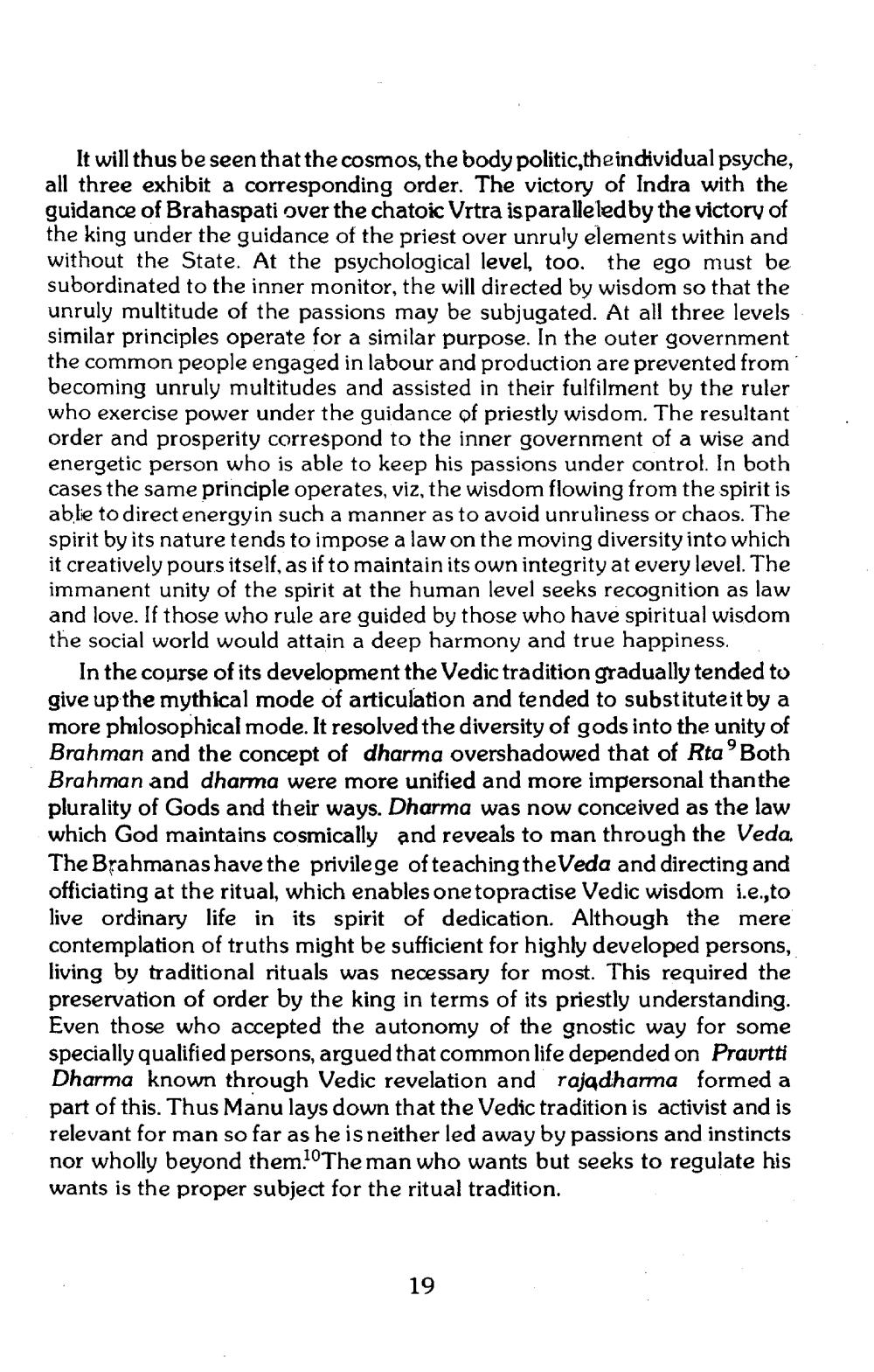________________
It will thus be seen that the cosmos, the body politic, the individual psyche, all three exhibit a corresponding order. The victory of Indra with the guidance of Brahaspati over the chatoic Vrtra isparalleledby the victory of the king under the guidance of the priest over unruly elements within and without the State. At the psychological level, too. the ego must be subordinated to the inner monitor, the will directed by wisdom so that the unruly multitude of the passions may be subjugated. At all three levels similar principles operate for a similar purpose. In the outer government the common people engaged in labour and production are prevented from becoming unruly multitudes and assisted in their fulfilment by the ruler who exercise power under the guidance of priestly wisdom. The resultant order and prosperity correspond to the inner government of a wise and energetic person who is able to keep his passions under control. In both cases the same principle operates, viz, the wisdom flowing from the spirit is able to direct energyin such a manner as to avoid unruliness or chaos. The spirit by its nature tends to impose a law on the moving diversity into which it creatively pours itself, as if to maintain its own integrity at every level. The immanent unity of the spirit at the human level seeks recognition as law and love. If those who rule are guided by those who have spiritual wisdom the social world would attain a deep harmony and true happiness.
In the course of its development the Vedic tradition gradually tended to give up the mythical mode of articulation and tended to substitute it by a more philosophical mode. It resolved the diversity of gods into the unity of Brahman and the concept of dharma overshadowed that of Rta’Both Brahman and dharma were more unified and more impersonal thanthe plurality of Gods and their ways. Dharma was now conceived as the law which God maintains cosmically and reveals to man through the Veda, The Brahmanas have the privilege of teaching the Veda and directing and officiating at the ritual, which enables one topractise Vedic wisdom i.e.,to live ordinary life in its spirit of dedication. Although the mere contemplation of truths might be sufficient for highly developed persons, living by traditional rituals was necessary for most. This required the preservation of order by the king in terms of its priestly understanding. Even those who accepted the autonomy of the gnostic way for some specially qualified persons, argued that common life depended on Praurtti Dharma known through Vedic revelation and rajadharma formed a part of this. Thus Manu lays down that the Vedic tradition is activist and is relevant for man so far as he is neither led away by passions and instincts nor wholly beyond them. The man who wants but seeks to regulate his wants is the proper subject for the ritual tradition.
19




